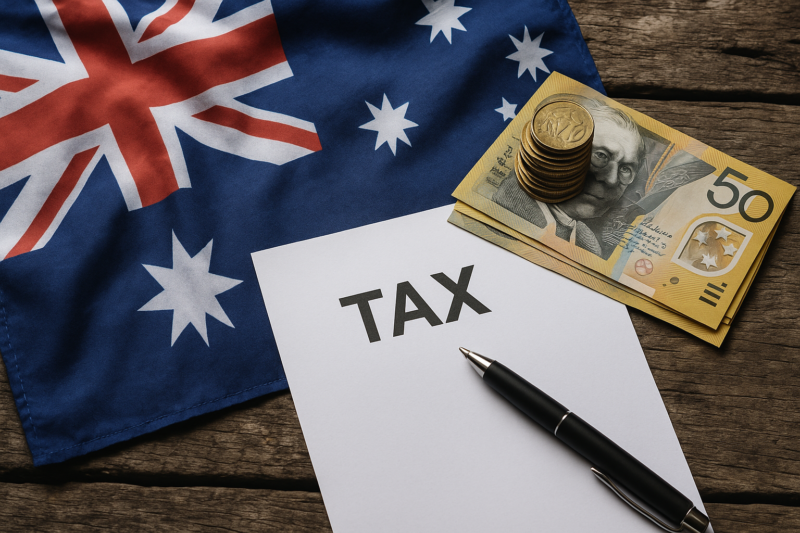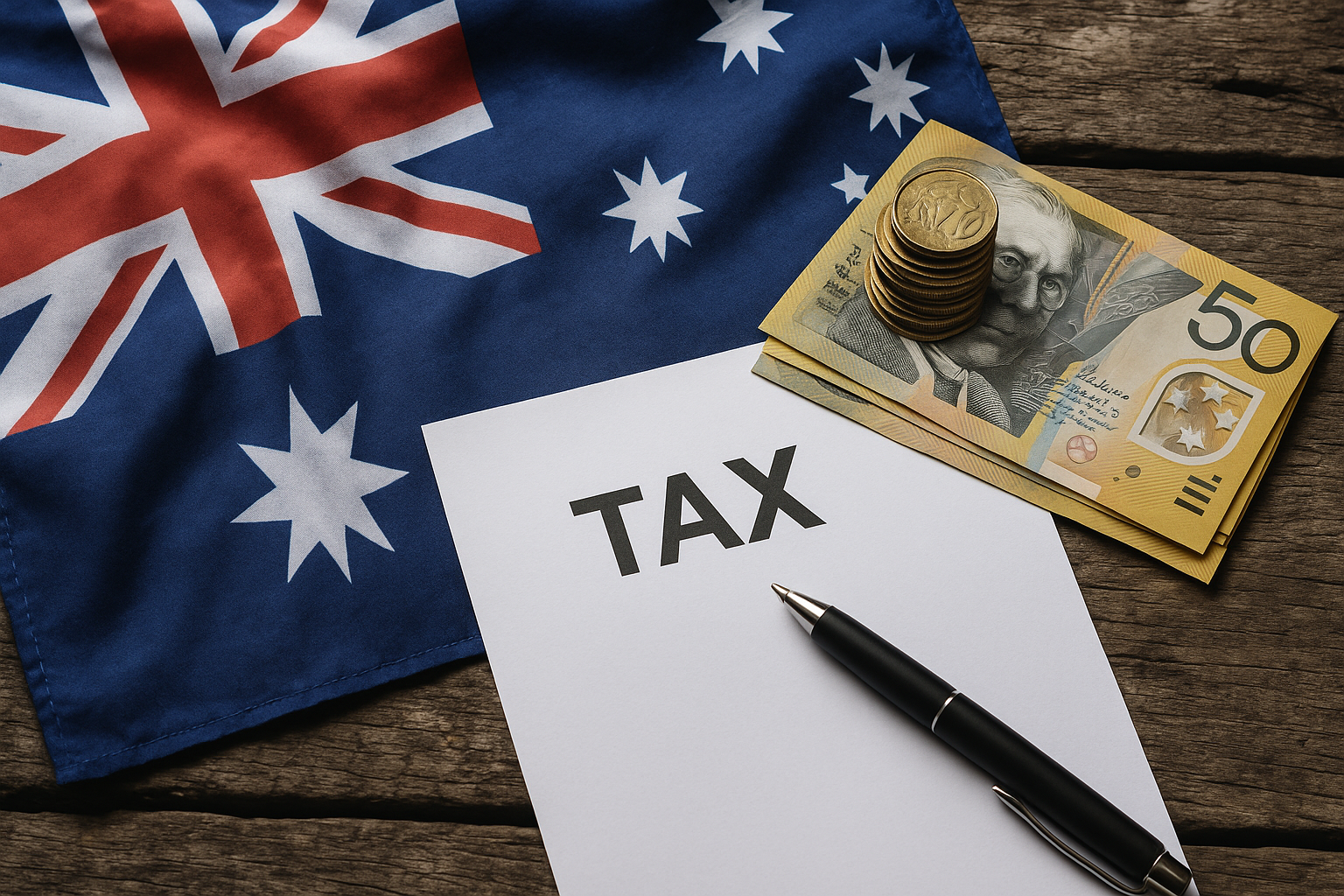
Key takeaways
21 out of 100 Australians pay no net tax due to low incomes, offsets, or deductions.
Just 39 people (39% of taxpayers) fund 87% of all income tax, with the top 3 alone paying 29%.
Investors collectively earned $56.2B in rent, but after costs, net income was just $1.6B (3 cents in the dollar).
Many are negatively geared, essentially losing money in the short term but betting on long-term capital growth.
Let me introduce you to a group of 100 everyday Aussies.
They come from all walks of life; teachers, tradies, nurses, small business owners, retirees, professionals, and investors.
Some rent, some own their homes outright, and a few have one or two investment properties.
Some are just starting their careers, and others are planning for retirement.
And thanks to data recently released by the ATO, summarised brilliantly by Firstlinks, we can now understand exactly who earns what, who pays tax, and who owns the country’s wealth.
Spoiler alert: it’s probably not who you think.

Most Australians pay little or no income tax
Here’s the surprising reality - out of every 100 Australian taxpayers, 21 pay no net tax at all. None.
That might be due to low incomes, offsets, or deductions, but they’re effectively outside the income tax system.
Now here’s where it gets really interesting:
- The top 3 earners in this sample of 100 pay a whopping 29% of the nation’s net personal income tax.
- The next 6 people pay another 18%.
- The next 30 kick in 40% more.
So, that’s just 39 people paying 87% of all income tax.
Meanwhile, those on less than $45,000 a year, which is 40 out of 100 Australians, contribute just 3% of the total tax take.
This paints a very clear picture: Australia’s tax system is already highly progressive.
A small portion of the population shoulders the vast majority of the tax burden.
Yet, in political discourse, and increasingly in media narratives, we’re hearing louder calls that “the rich need to pay their fair share of tax.”
But how much more is “fair” when 3% of taxpayers are already funding nearly a third of all personal income tax revenue?
What we need isn’t more punitive taxes, it’s a broader, more productive economy.
We need policies that encourage aspiration, not punish success.
The misunderstood investor: easy target, hard reality
Let’s turn our attention to property investors - the group so often portrayed as tax-dodging, rent-hiking villains.
According to the ATO:
- Just 2.26 million Australians own an investment property. That’s only about 14% of taxpayers. Or in our 100-person group, just 14 people.
- Of those, 70% own just one property, and less than 1% own six or more.
So much for the narrative that investors are hoarding all the housing stock.
These 14 investors collected $56.2 billion in gross rental income.
Sounds impressive, right? However, after accounting for all expenses, including interest on loans, maintenance, insurance, rates, agent fees, and depreciation, they were left with just $1.6 billion in net income.
That’s less than 3 cents in the dollar in actual profit.
And many investors ended up negatively geared, meaning they lost money on their properties but held on for future capital growth.
Far from being greedy landlords, most investors are simply ordinary Australians trying to get ahead by taking on risk, delaying gratification, providing a service required by almost 3 million Australians who rent and betting on long-term property performance.
Superannuation: the looming retirement gap
When it comes to retirement planning, many Australians are simply not prepared.
ATO figures show:
- The average super balance is around $173,000.
- However, the median balance , meaning that half have more, and half have less is just $60,000.
In other words, a small number of high-balance accounts are inflating the average, but most people don’t have anywhere near enough saved for a comfortable retirement.
Even if you combine that with the age pension, it’s not going to fund the kind of retirement many Australians aspire to - particularly when living costs are rising and people are living longer – often up to 30 years after they leave the workforce.
This is why so many Australians turn to property investment.
Unlike super, which is locked away and controlled by fund managers, property offers:
- Control over the asset and strategy
- Leverage allowing you to build a bigger base with less capital
- Tax advantages like depreciation and gearing
- And capital growth, which compounds over decades
It’s not perfect, and it’s certainly not risk-free, but for many, it’s the only realistic path to financial independence.
So… is the tax system broken?
That depends on who you ask.
Critics argue that the system favours the wealthy, citing negative gearing, capital gains discounts, and family trusts as examples.
But when you actually look at who’s paying what, you realise that the top end is already carrying most of the load.
The truth is, Australia has one of the most progressive tax systems in the world.
And yet, every few years, we get new proposals to "level the playing field" by:
- Capping super balances (e.g. the new 30% tax on earnings above $3 million)
- Cutting negative gearing
- Reducing CGT exemptions
- Hiking land taxes or introducing new property levies
But all these policies have unintended consequences.
They don’t just target the ultra-wealthy.
They also hurt the aspirational middle class, the self-funded retirees, the professionals trying to build a portfolio, the mum-and-dad investors trying to get off the pension.
What’s the alternative?
Instead of taxing the few who are already contributing the most, perhaps it’s time to broaden the tax base.
That means:
- Encouraging more people to invest, rather than discouraging those who already do.
- Reforming spending, not just revenue collection.
- Focusing on economic growth, so more people move into higher income brackets and contribute more over time.
Because here’s the reality - relying on a small group to fund the majority of the budget is not sustainable in the long run, especially in an ageing society with fewer workers per retiree and growing social spending.
Final thoughts
If you take one thing away from these 100 Aussies, let it be this:
The people who earn the most already pay the most.
Investors are not the enemy.
And most Australians will never build enough super to retire comfortably without making smarter choices with their money - and that often includes investing in property.
So if you’re serious about building wealth, protecting your assets, and securing your financial future, the answer isn’t to sit on the sidelines or wait for governments to fix it.
It’s to take control, with the right advice, the right strategy, and the right mindset.
And that’s exactly what we help our clients do at Metropole – why not have a Complimentary Wealth Discovery Session comes in. We’re offering you a 1-on-1 chat with a Metropole Wealth Strategist to help you:
- Clarify your financial goals
- Understand how macro trends affect your position
- Build a personalised, data-driven property strategy
- Get ahead of the curve — before everyone else piles in
There’s no cost, no obligation — just practical, tailored guidance based on decades of experience.
Click here now to book your free Wealth Discovery Session














